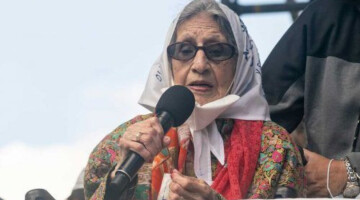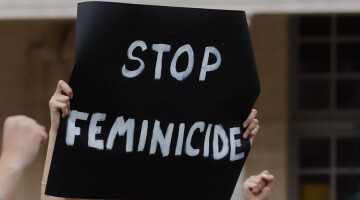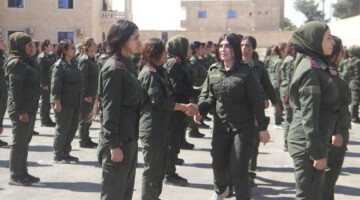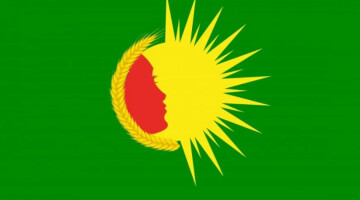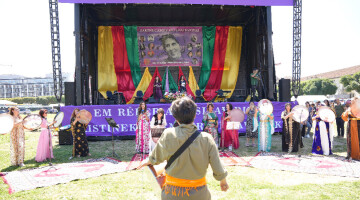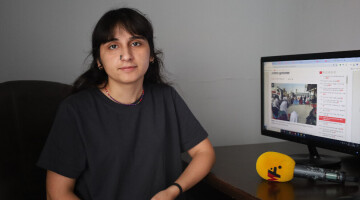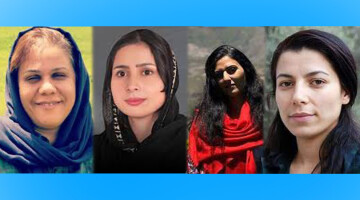Firyal Silêman Xalid was shot dead in the middle of the street in the Kurdish metropolis of Kirkuk in northern Iraq on Thursday. She was travelling in the Serçnar district north of the city when she was shot at close range by a man armed with a pistol with a silencer. The gunman and an accomplice turned up on a motorbike, which they used to escape unrecognised. The Kirkuk police have started an investigation and launched a manhunt for the suspects.
The attack on Firyal Silêman Xalid, which was carried out in front of a school in the Rehîmawe neighbourhood, was apparently aimed specifically at the Kurdish woman. According to witnesses, one of the attackers is reported to have said shortly before the shooting that they had come to eliminate the activist. An initial autopsy revealed that Xalid was hit by nine bullets. Most of them were fatal, a police spokesman said.
Firyal Silêman Xalid lived in Hesekê in the autonomous region of North and East Syria, where she was born, and joined the Kurdish movement 31 years ago. She was in Kirkuk at the invitation of women's organisations from South Kurdistan. The aim of the trip was to discuss women's issues and gender equality.
The murder of activist Firyal Silêman Xalid has caused anger and grief among women's organisations. "This is not the first political assassination of struggling women, and there is no justification for such heinous and cowardly acts," said the spokesperson of the DEM (Peoples’ Equality and Democracy Party) Party's Women's Council, Halide Türkoğlu, at the organisation's weekly press conference in Ankara.
"Wherever they are in the world, women activists and politicians have been the target of patriarchal power structures at all times in history. Those who murdered women like Rosa Luxemburg, Sakine Cansız, Sêvê Demir and Nagihan Akarsel have once again shown their bloody faces, this time in Kirkuk. The assassination of Firyal Silêman Xalid is a political murder. We know very well which forces are behind it," said Türkoğlu.
The Kurdish Women's Movement in Europe (TJK-E) also spoke of a political murder. Firyal Silêman Xalid is the latest victim of a series of deadly attacks on Kurdish women that has been going on for years and is part of the Turkish state's anti-Kurdish genocidal policy, the movement said in a statement: "The murder of Firyal, which resembled an execution, is a massive attack on the will of all women and their protagonist role in organising society."
The umbrella organisation of the women's movement in North and East Syria, Kongra Star, condemned the bloody deed and demanded that the Iraqi authorities fully investigate the murder. "They must bring the truth to light. Otherwise, they will be complicit and become accomplices to the murderers of Firyal Silêman Xalid," emphasised Kongra Star. The organisation called on women to "rise up and stand up for the fight for freedom" in order to help solve the murder and demand accountability.
The Coordination of the Kurdistan Women's Community (KJK) has also condemned the deadly assassination. "The fascist, misogynist and genocidal Turkish state has once again shown its dirty, bloodthirsty and sinister face with the murder of the Kurdish revolutionary Firyal Silêman Xalid. The government led by the AKP/MHP alliance, the scourge of the world, has systematically included the murder of leading women figures in its war against the Kurdish people since 2013. Since the massacre of our companions Sakine Cansız (Sara), Fidan Doğan (Rojbîn) and Leyla Şaylemez (Ronahî) on 9 January 2013 in the heart of France's capital Paris, dozens of Kurdish women revolutionaries, politicians and activists have been killed in Europe as well as in Northern, Southern and Western Kurdistan."
The KJK further stated: "These attacks, which are nothing but massacres, are undoubtedly closely related to the awareness gained through the Kurdish freedom struggle that has been going on for decades and the representation of women in leading positions of this resistance. The Turkish state is acting like an assassination network to weaken the level of struggle achieved by Kurdish women. It assumes that by massacring women and Kurds, it can dissuade them from the struggle for freedom and resistance. However, the resistance practice of Kurdish women over the past five decades shows that this is a big mistake. Every massacre and every attack has strengthened the will of Kurdish women and reaffirmed their determination to maintain their place in the ranks of the revolutionary struggle."







